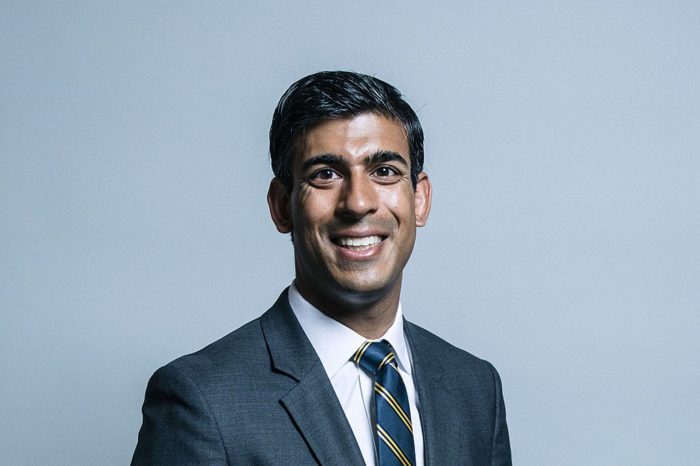
Rishi Sunak, a Briton of Indian origin, has become Prime Minister of the United Kingdom. At 42, he is the youngest prime minister in 200 years and the first of non-white origin.
Also, he may be the richest prime minister with a worth of $830 million according to a Sunday Times list, which is more than the late Queen Elizabeth’s documented wealth.
There is some irony in his remarkable ascension because one of his most celebrated predecessors, Winston Churchill, once called Indians “a beastly people with a beastly religion.” Now, on the shoulders of a person whose origins lie in those beastly people and who is a practicing Hindu, the beastly religion, lies the historic responsibility of reuniting Churchill’s beloved Conservative Party (the Tories) which is more grievously fragmented than in over a century.
On his shoulders will also lie the daunting responsibility of pulling Britain’s economy out of decline after the shocks of the coronavirus pandemic and the near meltdown of financial markets during the 44-days of Liz Truss, his immediate predecessor.
He will also have the very complex task of repairing the foundational damage done to Britain’s place in the world by Brexit, the exit from the European Union, which he vociferously supported along with Boris Johnson, the former prime minister in whose cabinet he served as finance minister.
The cards are stacked against Sunak because more than half of rank-and-file Tories are indifferent or against him. He got the job because of the peculiarities of the selection process this time in which about 200 elite Tories made the choice, instead of all 170,000 Party members.
In the British system, the Party selects the leader who automatically becomes Prime Minister. The Party can also depose Prime Ministers by choosing a new leader at any time during the 5-years between general elections.
This is what happened in Sunak’s case. The British economy is in so much disarray since Brexit and the Tories so fragmented among themselves that they deposed three prime ministers in five years and Sunak was the last man standing this fourth time. Johnson was his main opponent a week ago but stepped out of the race because he failed to get enough support, leaving Sunak as the only candidate.
This is not a Barack Obama moment for Britain, when Americans made history by voting for a black President. Sunak will not face voters until the general election in 2025. Meanwhile, he might be just a punching bag for the contradictory trends plaguing the Tories and British politics.
Worse, this is a time of extreme stress caused by Russia’s war in Ukraine that has shot inflation through the roof and caused supply chain disruptions in energy and other materials that may take five to 10 years to overcome. The struggle is uphill because of Britain’s diminishing economic and financial power following Brexit, when it lost all privileged access to its largest trading partners in neighboring Europe.
Still, Sunak stands a chance because in the current bog of Tory frenzy, his is an image of calm. His was a steady and competent hand as Chancellor of the Exchequer in Johnson’s cabinet during the deeply disruptive years of the Covid-19 pandemic and the repeated lock downs that happened soon after Brexit.
He has already brough a small degree of calm to financial markets, which are crucial for Britain’s standing in the world, after the panic during Truss’s short spell in the seat of power. He is seen as having a more sober and less ideological approach to leadership than others in the Tory Party.
He is expected to make his main address to the British people on Tuesday when he enters the Prime Minister’s official residence at 10 Downing Street. He is somewhat wooden and not known for charisma but the hope is that he makes his pitch in a “I understand you because I’m one of you” manner. That will not be easy for a very rich person of immigrant origin and an elite education at Oxford and Stanford.
In short remarks on Monday, he said mainly that “the United Kingdom is a great country, but there is no doubt we face a profound economic challenge. We need stability and unity, and I will make it my utmost priority to bring our party and our country together.”
Unity and a sense of national purpose are what the Tories and British people need. Sunak will have to provide leadership that generates trust and emotional closeness to ordinary Britons.

















